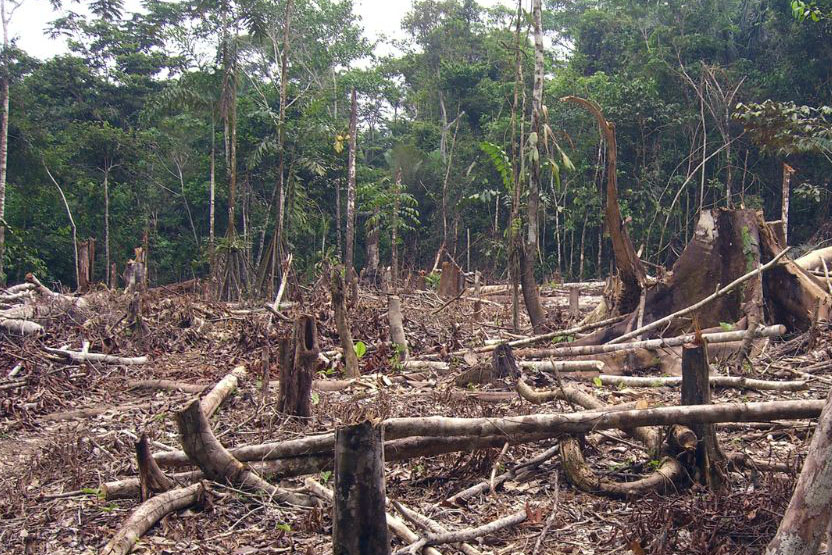A new scientific study published in Nature has revealed that large-scale deforestation across the tropics has caused more than 500,000 deaths over the past 20 years, mainly as a result of hea

Researchers found that between 2001 and 2020, the destruction of 1.6 million km² of tropical forests—an area roughly the size of Iran—caused significant local increases in temperature. While global climate change has contributed to rising heat, the study shows that deforestation alone accounted for more than one-third of the warming experienced by populations in affected regions.
On average, deforested areas warmed by 0.45°C, with some regions experiencing local temperature rises of up to 3°C above expected levels. The loss of forest cover has removed natural shade, reduced rainfall, increased fire risks, and intensified exposure to extreme heat.
The study estimates that 345 million people across the tropics were exposed to deforestation-driven warming during the two-decade period. Among them, around 2.6 million people lived in areas where local temperatures exceeded safe thresholds by 3°C.
The consequences have been severe: researchers calculate that deforestation-induced warming led to 28,330 additional deaths every year between 2001 and 2020. This amounts to more than half a million deaths in two decades.
Regional breakdown: Southeast Asia worst hit
Nearly half of the deaths occurred in Southeast Asia, particularly in Indonesia, due to its dense populations and high vulnerability to heat stress. Another third were recorded in tropical Africa, while the rest occurred in Central and South America.
The study highlights that these deaths represent about 1% of non-accidental mortality in regions of tropical forest loss, a health burden comparable to that of diseases such as malaria in some countries.
Deforestation kills
Professor Dominick Spracklen of the University of Leeds, a co-author of the study, stressed that the findings shift the debate around forests:
“The key message is clear: deforestation kills. Discussions about forests often focus on carbon, biodiversity, or agriculture, but we ignore the direct health risks faced by local populations.”
He added that keeping forests standing not only mitigates global warming but also protects millions of people from heat stress and sustains stable conditions for agriculture.
Forests as vital shields
Tropical forests currently cover 31% of Earth’s land surface, store about 296 gigatonnes of carbon, and harbor the bulk of the world’s terrestrial biodiversity. They also act as natural shields against extreme weather, regulate rainfall, and sustain livelihoods for millions.
Despite this, about 10 million hectares of forests are destroyed each year, mainly for agriculture and livestock expansion. The study warns that 96% of global deforestation takes place in tropical regions, putting some of the world’s most vulnerable populations at heightened risk.


Comment